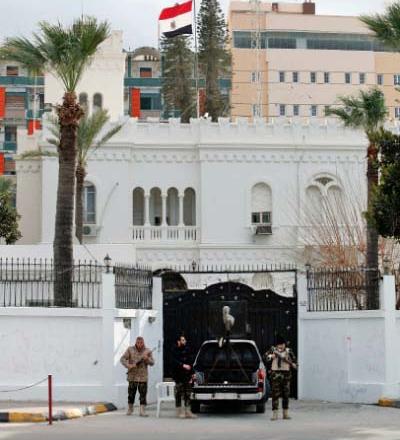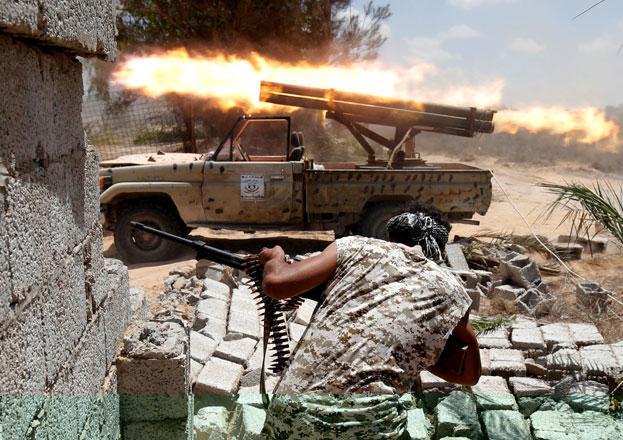TRIPOLI — Assailants gunned down a Libyan deputy minister overnight, officials said on Sunday, in the first killing of a government member since the 2011 overthrow of dictator Muammar Qadhafi.
Deputy Industry Minister Hassan Al Droui was shot dead during a visit to his hometown of Sirte, east of Tripoli, which was also Qadhafi’s hometown, security and hospital officials said.
And in another sign of the instability plaguing the country, the toll from tribal clashes in the southern town of Sebha rose to 27 dead, with another 72 people wounded in the unrest.
“Hassan Al Droui, the deputy minister for industry, was killed by unknown attackers overnight, during a visit to his native city of Sirte,” a security official told AFP.
“Unidentified gunmen sprayed bullets on Mr Droui in central Sirte,” the official said on condition of anonymity.
A medical official at the city’s Ibn Sina Hospital said Droui had suffered multiple gunshot wounds.
The Libyan government denounced a “cowardly criminal act” and said in a statement it would “spare no effort to track down the perpetrators and prosecute them”.
Droui was a former member of the National Transitional Council, the political arm of the rebellion that brought an end to Qadhafi’s 42-year rule.
He was appointed deputy minister for industry by the transitional government’s first premier, Abdelrahim Al Kib, and kept his job when Prime Minister Ali Zeidan took office.
Sirte, which lies on the Mediterranean coast about 400 kilometres east of Tripoli, was the last regime bastion to fall into rebel hands in the 2011 uprising during which Qadhafi was killed.
Since the collapse of Qadhafi’s autocratic regime, Libya has been plagued by sporadic violence, including a string of assassinations targeting top army and security officials and the brief abduction of Zeidan.
Deadly tribal clashes
The number of casualties from clashes between rival tribes in the southern town of Sebha and nearby Murzuq and Al Shati rose to 27 dead and 72 wounded, a government statement said on Sunday.
Fighting broke out in the area on Saturday pitting gunmen from the Arab Awled Sleiman tribe against tribesmen from the Toubou minority.
Local sources said the clashes were sparked by the death on Thursday of a militia chief linked to Awled Sleiman, adding that the tribe accused the Toubou of murdering him.
The Toubou are black oasis farmers by tradition who also live in southern Libya, northern Chad and Niger, who have repeatedly said they were being marginalised.
A previous toll from the town’s local council had said that 19 died in the fighting and another 27 wounded.
Fresh fighting broke out in Sebha on Sunday morning, witnesses reported.
But in the afternoon the streets appeared to be calm, they said, adding that troops and policemen reinforcements were deployed in the town.
The government said in a statement it sent reinforcements to secure residential areas and strategic installations in Sebha and that a “committee of elders” was trying to end the unrest.
The fighting was the worst between the rival tribes since they struck a ceasefire agreement in March 2012 following deadly battles that killed at least 150 people and wounded 400 others.
The Toubous have long complained of marginalisation by Libyan society, while Arab tribes have accused the minority of employing foreign fighters, particularly from Chad.
The tribal clashes in Sebha could have a knock-on effect on production at several nearby oilfields in the mostly desert south.
Libya is currently struggling with a months-long oil crisis, which erupted when security guards at key oil terminals in the east shut them down, accusing the authorities of corruption and demanding a more equitable distribution of oil revenues.
Oil Minister Abdelbari Al Arusi said last month that lost production from the blockades had cost Libya about $9 billion (6.6 billion euros) in revenues.


















